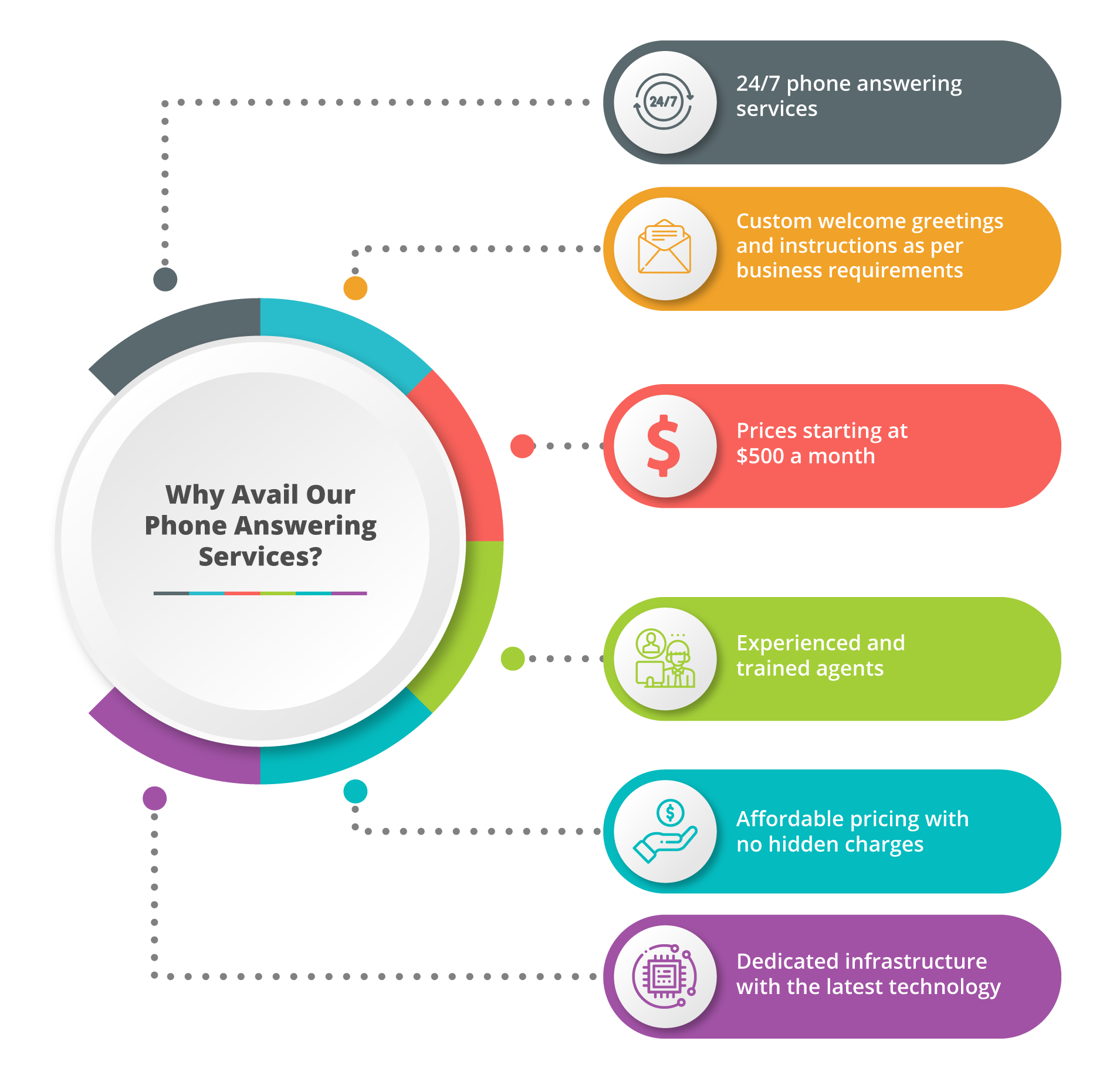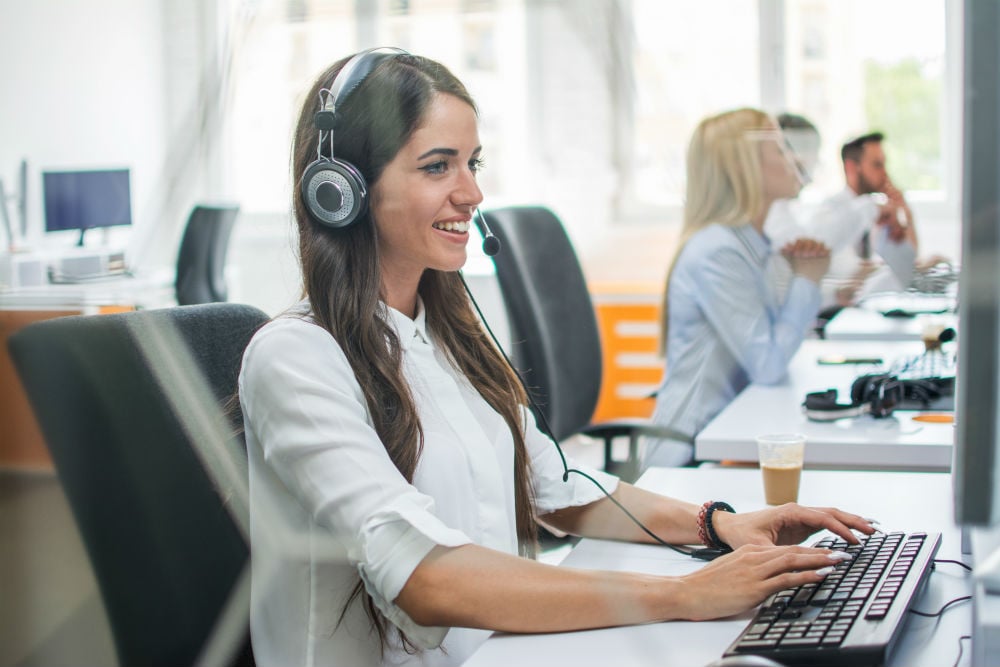All Categories
Featured
Table of Contents
- – What Is The Best Virtual Assistant Call Answeri...
- – The Best Business Answering Services - Virtual...
- – What Is The Best Outsource Answering Services ...
- – A Best 6 Statistics That Prove Your Business ...
- – How Much Does What Is An Answering Service? S...
- – A Best Answering Adelaide - Phone Answering ...
What Is The Best Virtual Assistant Call Answering Service Company
This device and its followers were developed by Sava Jacobson, an electrical engineer with a personal consulting business. While early answering devices used magnetic tape technology, many modern-day devices uses solid state memory storage; some gadgets use a mix of both, with a solid-state circuit for the outbound message and a cassette for the inbound messages.
"toll saving" below) (virtual telephone answering). This is beneficial if the owner is screening calls and does not want to talk with all callers. In any case after going, the calling party ought to be informed about the call having actually been responded to (most of the times this begins the charging), either by some remark of the operator, or by some welcoming message of the little, or dealt with to non-human callers (e.
This holds particularly for the TADs with digitally saved greeting messages or for earlier machines (before the increase of microcassettes) with an unique limitless loop tape, separate from a 2nd cassette, devoted to recording. There have actually been answer-only devices without any recording capabilities, where the greeting message needed to inform callers of a state of current unattainability, or e (phone answering).
The Best Business Answering Services - Virtual Receptionists Service?

about schedule hours. In recording TADs the welcoming typically contains an invitation to leave a message "after the beep". A voice mail that utilizes a microcassette to tape-record messages On a dual-cassette answerphone, there is an outgoing cassette, which after the specified variety of rings plays a pre-recorded message to the caller.

Single-cassette answering makers include the outgoing message at the beginning of the tape and inbound messages on the remaining area. They first play the statement, then fast-forward to the next offered area for recording, then tape-record the caller's message. If there are many previous messages, fast-forwarding through them can cause a considerable hold-up.
This beep is often referred to in the greeting message, requesting that the caller leave a message "after the beep". Littles with digital storage for the recorded messages do disappoint this hold-up, of course. A little bit may provide a push-button control facility, where the answerphone owner can sound the house number and, by entering a code on the remote telephone's keypad, can listen to tape-recorded messages, or erase them, even when away from home.
What Is The Best Outsource Answering Services In The Usa - Start From $11/hr Company?

Therefore the maker increases the number of rings after which it addresses the call (normally by two, resulting in 4 rings), if no unread messages are currently kept, however responses after the set variety of rings (typically two) if there are unread messages. This permits the owner to learn whether there are messages waiting; if there are none, the owner can hang up the phone on the, e.
Some machines likewise permit themselves to be from another location activated, if they have actually been changed off, by calling and letting the phone ring a certain a great deal of times (typically 10-15). Some company desert calls currently after a smaller variety of rings, making remote activation impossible. In the early days of TADs an unique transmitter for DTMF tones (dual-tone multi-frequency signalling) was regionally required for push-button control, since the previously used pulse dialling is not apt to convey suitable signalling along an active connection, and the dual-tone multi-frequency signalling was executed step-by-step.
Any incoming call is not identifiable with regard to these properties in advance of going "off hook" by the terminal equipment. So after going off hook the calls should be switched to appropriate devices and only the voice-type is instantly accessible to a human, however possibly, however must be routed to a LITTLE (e.
A Best 6 Statistics That Prove Your Business Needs A Phone ... - Blog
What if I informed you that you do not have to really pick up your gadget when answering a customer call? Somebody else will. So convenient, ideal? Addressing telephone call doesn't need someone to be on the other end of the line. Efficient automated phone systems can do the trick just as efficiently as a live representative and often even better.
An automatic answering service or interactive voice action system is a phone system that interacts with callers without a live person on the line - business answering service. When companies use this innovation, clients can get the response to a question about your organization merely by utilizing interactions set up on a pre-programmed call flow.
Although live operators upgrade the customer support experience, many calls do not need human interaction. An easy recorded message or guidelines on how a client can recover a piece of details normally resolves a caller's instant requirement - virtual call answering service. Automated answering services are an easy and effective way to direct incoming calls to the best person.
How Much Does What Is An Answering Service? Service Cost?
Notice that when you call a company, either for support or product inquiry, the first thing you will hear is a pre-recorded voice greeting and a series of alternatives like press 1 for client service, press 2 for questions, and so on. The pre-recorded choices branch off to other options depending upon the customer's choice.
The phone tree system helps direct callers to the best person or department utilizing the keypad on a cellphone. In some circumstances, callers can use their voices. It deserves noting that auto-attendant alternatives aren't limited to the 10 numbers on a phone's keypad. As soon as the caller has actually chosen their very first option, you can develop a multi-level auto-attendant that utilizes sub-menus to direct the caller to the right type of help.
The caller does not have to communicate with a person if the auto-attendant phone system can manage their issue. The automated service can path callers to an employee if they reach a "dead end" and need support from a live representative. It is costly to work with an operator or executive assistant.
A Best Answering Adelaide - Phone Answering Services
Automated answering services, on the other hand, are significantly more economical and offer significant expense savings at an average of $200-$420/month. Even if you do not have actually devoted personnel to handle call routing and management, an automatic answering service improves efficiency by allowing your team to concentrate on their strengths so they can more effectively spend their time on the phone.
A sales lead routed to customer care is a lost shot. If a client who has product questions reaches the wrong department or receives insufficient responses from well-meaning staff members who are less trained to handle a particular kind of concern, it can be a reason for disappointment and discontentment. An automatic answering system can minimize the variety of misrouted calls, consequently helping your staff members make better use of their phone time while freeing up time in their calendar for other tasks.
With Automated Answering Systems, you can develop a tailored experience for both your personnel and your callers. Make a recording of your primary greeting, and merely upgrade it routinely to show what is going on in your organization. You can create as many departments or menu choices as you want.
Table of Contents
- – What Is The Best Virtual Assistant Call Answeri...
- – The Best Business Answering Services - Virtual...
- – What Is The Best Outsource Answering Services ...
- – A Best 6 Statistics That Prove Your Business ...
- – How Much Does What Is An Answering Service? S...
- – A Best Answering Adelaide - Phone Answering ...
Latest Posts
Business Phone Answering Services Near Me – Brisbane 4066
Honest Bilingual Answering Service
Real Estate Answering Service – Darling Downs 4350
More
Latest Posts
Business Phone Answering Services Near Me – Brisbane 4066
Honest Bilingual Answering Service
Real Estate Answering Service – Darling Downs 4350